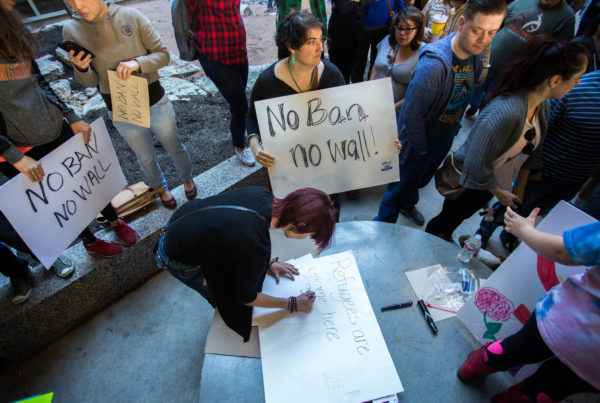Brian Encinia, a Texas state trooper, pulled over Sandra Bland in 2015 for the failure to signal a lane change while driving in Waller County.
Bland’s conversation with the officer, caught on a dash camera, became heated, rapidly. Bland was ultimately ordered out of her car and arrested for assaulting a public servant.
Three days after her arrest, Bland was found dead in her Waller County Jail cell, sparking outrage and concerns about jail conditions and the circumstances leading up to her arrest. Her death has been ruled a suicide by hanging.
State Rep. Garnet Coleman (D-Houston) wants to make sure no one forgets the case. He’s laying the groundwork for a new set of reforms that would focus on race, poverty, mental health and accountability in law enforcement and corrections. He says the bill is still in the drafting stage.
“Sandra Bland’s death lays out the whole concern about criminal justice reform, including jail suicides,” he says.
Her case also brought to light what happens when a simple traffic stop turns into an investigative stop, Coleman says.
“Part of the Sandra Bland Act will be to remove from the law the ability to arrest someone for a minor traffic violation or to use what we would call an investigative stop – pulling someone over for that minor traffic violation – to investigate a different crime than the traffic violation.”
Research from the University of North Carolina at Chapel Hill noted in 2012 that African Americans are 75 times more likely than whites to get pulled over and searched at a stop.
“In my opinion … that racial disparity should be considered to be racial profiling,” Coleman says. “Under our law in Texas, it’s not.”
The Fourth Amendment stipulates that a person has a right against unreasonable searches and seizures except upon probable cause. But a Supreme Court case in 1977 upheld that police officers may order a driver to exit their car if lawfully detained for a traffic violation, without violating the Fourth Amendment.
The Fourth Amendment does offer sufficient protections, Coleman says, but that doesn’t mean it has to be the law. He says 17 other states do not allow investigative stops by law.
“It may be that it’s constitutional, [but it] doesn’t mean that it’s correct,” Coleman says.
Written by Beth Cortez-Neavel.

















